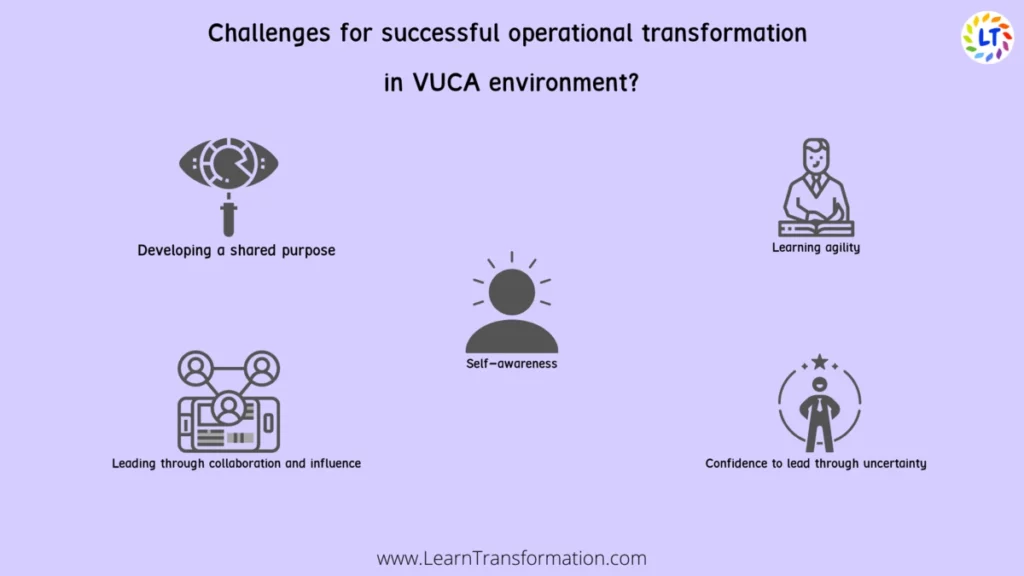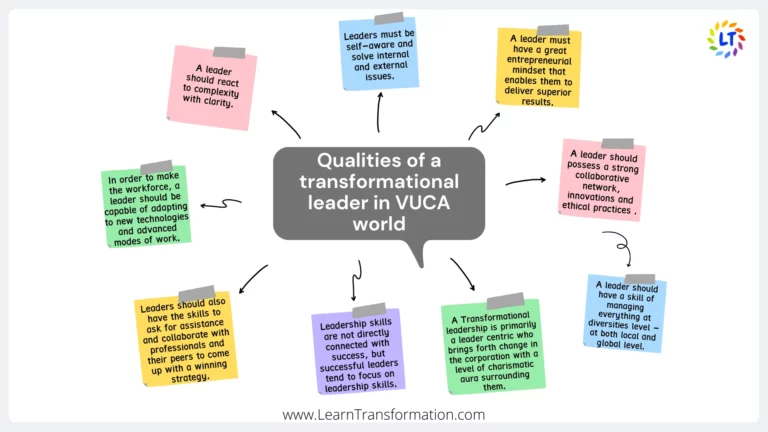The purpose of an organisation is to enable ordinary people to do extraordinary things.
Peter Ducker
Operational Transformation (OT) was pioneered by C. Ellis and S. Gibbs in GROVE (group outline viewing edit) system in 1989. Operational transformation is a technology for supporting a range of collaboration functionalities in advanced collaboration software systems. OT was originally invented for consistency maintenance and concurrency control in collaborative editing of plain text documents.
Unlock a world of knowledge with just one click: Navigating Lean Digital Transformation
Difference Between Operational Transformation and Process Transformation?
In order for us to understand Operational transformation, we should recognize the types of change that can take place. Moreover, Process transformation can include change from a departmental perspective, which can include workflow changes, job classification changes, training changes, and organizational structure changes. Operational transformation can also include a range of activities, including organizational structure changes (changes to the organization) and process changes.
Process transformation may involve the use of operational transformation tools, but I would encourage you to not get too focused on the tools. Instead, focus on what you want to achieve.
In this fast-growing world focusing on your goals and passion is important as well as the tough growing competition enables an operational leader to exceed and meet the highest standards of service
But, if you feel that process transformation is far behind operational transformation, don’t worry. Thereupon, Many businesses (including successful ones) have successfully solved this issue and made it their own.
Challenges for Successful Operational Transformation

According to Ashridge Professor Vicki Culpin. Leaders need to develop the resilience to keep going when everything around them is constantly changing. So, here we present the five skills based on the latest research that are vital for a leader to be successful in VUCA environment.
1. Developing a shared purpose
The ability to build teams where employees have a shared purpose and vision is key. therefore, Leaders need to help their people to understand the bigger picture and how they personally fit into it.
2. Learning agility
Tomorrow’s leaders need to be willing to stretch themselves out of their comfort zones and be open-minded enough to rapidly embrace new concepts.
3. Self-awareness
Leaders need an understanding of their own strengths and areas for development and the impact their communication as well as working style have on others. So, The ability to be authentic and show your true self at work is key to building trust.
4. Leading through collaboration and influence
Success often depends on working with people over whom you have no official authority. So, Tomorrow’s leaders need high-level influencing skills and the ability to collaborate with a wide range of stakeholders.
5. Confidence to lead through uncertainty
The ability to assess acceptable levels of risk and make decisions based on incomplete or even conflicting information is key. Managers also need the ability to learn from mistakes and to allow others to do the same.
Leader’s Tip
Encourage staff to discover and address operational inefficiencies by adopting a continuous improvement mindset.
Hand Picked for you – Autocratic leadership in VUCA world
Qualities of a Operational Transformational Leader in VUCA World
The way in which we conduct or think about our business have subsequently changed within a decade. So, The term VUCA – which stands for VOLATILITY, UNCERTAINTY, COMPLEXITY, and AMBIGUITY – is a common phrase these days in the corporate world.
Hence, Here are few of the qualities of a transformational leader in VUCA world.
- The more you give, then more it comes back to you. So, A Leader should believe in the power of giving.
- A Transformational leadership is primarily a leader centric who brings forth change in the corporation with a level of charismatic aura surrounding them.
- A leader should react to complexity with clarity.
- A leader should possess a strong collaborative network, innovations and ethical practices
- A leader should have a skill of managing everything at diversities level – at both local and global level.
Check Exclusive Video:
- In order to make the workforce, a leader should be capable of adapting to new technologies and advanced modes of work.
- Leaders must be self-aware and solve internal as well as external issues.
- Leaders should also have the skills to ask for assistance and collaborate with professionals and their peers to come up with a winning strategy.
- A leader must have a great entrepreneurial mindset that enables them to deliver superior results.
- Leadership skills are not directly connected with success, but successful leaders tend to focus on leadership skills.
Leader’s Tip
To overcome hurdles and create successful operational transformation, cultivate a culture of adaptation, resilience, and collaboration.
Conclusion
Research on responsible leadership, leadership qualities, leadership skills is still at a nascent stage. However, given its all compassing approach towards ethicality, valuing others and inclusively, it is certain that this type of leadership is the ‘need of the hour’. The foundation of responsible leadership is based on the following treatise ” Give to the world the best you have and the best will come back to you”.
4 Best Lean Principles Books
Global Reader’s Click Below:
- A Factory of One: Applying Lean Principles to Banish Waste and Improve Your Personal Performance
- The 12 Principles of Manufacturing Excellence: A Lean Leader’s Guide to Achieving and Sustaining Excellence, Second Edition
- The Lean Six Sigma Pocket Toolbook: A Quick Reference Guide to 100 Tools for Improving Quality and Speed
- The Lean Turnaround: How Business Leaders Use Lean Principles to Create Value and Transform Their Company
India Reader’s Click below:
- Lean IT – Principles to Practice: Toyota Way to Create Value for the Customer & Wealth for IT Organization
- Creating a Lean R&D System: Lean Principles and Approaches for Pharmaceutical and Research-Based Organizations
- Lean Principles and Application in BPO
- The Principles of Product Development Flow: Second Generation Lean Product Development
FAQs
What are the characteristics of a transformation leader?
- Characteristics of a transformation leader are:
- Learning agility
- Self-awareness
- Leading through collaboration and influence
- Confidence to lead through uncertainty
How transformational leaders can help in a VUCA world?
Transformational leadership is primarily a leader centric who brings forth change in the corporation with a level of charismatic aura surrounding them. A leader should possess a strong collaborative network, innovations and ethical practices.
Key Takeaways
- Identifying and tackling significant problems such as opposition to change, resource limits, and legacy processes is required for operational transformation.
- Strategic thinking, good communication skills, and the capacity to inspire and encourage teams are all characteristics of effective leaders.
- Data-driven decision-making, process optimisation, and utilising technology to achieve efficiencies are critical components for successful operational transformation.

